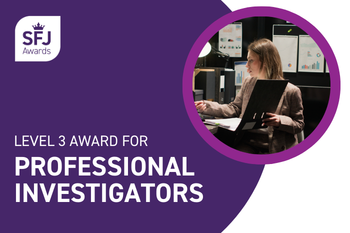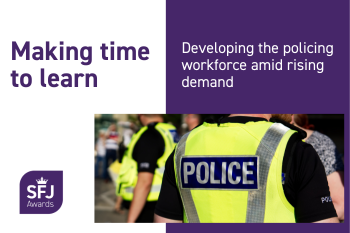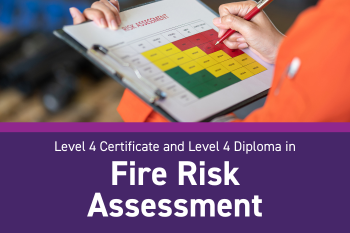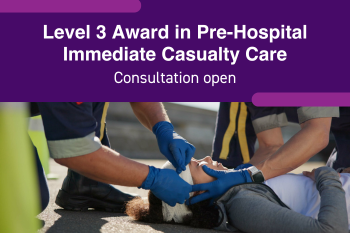When push comes to shove, you want the best people on the frontline. The security industry is built on trust, which is why professionalism and reputation are as important as outcomes.
As an awarding organisation and End-Point Assessment Organisation dedicated to supporting the protective services, the focus for our qualifications is on quality and reputation. But why does this matter so much for the security sector, and how does this interact with the changing threat landscape the security workforce is expected to manage?
Raising security standards
When it comes to delivering Security Industry Authority (SIA)-linked or protective security qualifications, our focus is on being the most trusted awarding organisation. We work with training providers who share our commitment to quality, compliance and professional standards.
Unfortunately, over the years there have been many claims about unscrupulous or fraudulent training providers, leading to inconsistent standards, skills gaps and a negative view of the security industry.
We have been working with training providers and the SIA closely to build trust back up and have at times taken decisive action to withdraw approval for centres who didn’t match up to the standards we hold. We understand that low standards don’t just damage reputations, they risk public safety.
Adapting to a changing threat landscape
Regulations are changing. The challenges for public spaces, and those who use them, are evolving. The threat environment of the UK is fluid – not only in terms of what the threats are – but how, where and when they emerge. For organisations involved in security training and qualifications, failing to respond to these shifts means running behind the curve.
To keep up with the latest information and best practice, the security industry is now working more closely than ever with public services, as well as with relevant legislation, government guidelines and industry standards. Credible qualifications with learning outcomes that protect public safety rely on having access and deep understanding of these guidelines. As a sector specialist we’ve got our finger on the pulse to help training providers make sure they are delivering high quality learning outcomes.
The reality is that the security workforce requires a wider variety of roles and specialisms – such as crowd management, risk assessment, protective security, surveillance, and more – as they respond to emerging needs.
Public spaces under pressure
Publicly accessible spaces such as shopping centres, transport hubs, visitor attractions or event venues are increasingly in the spotlight, with calls to make counter terrorism measures more robust across the UK. These calls are not only a result of increased risk of terror threats – more on that below – but also from the everyday security measures we need to make sure are in place. Public spaces continue to get busier as populations and urban centres grow, and large-scale events and festivals are now commonplace.
For training providers and awarding organisations, this signals the need for education that address topics such as venue vulnerability, crowd dynamics, hostile vehicle mitigation, and collaborative planning with local authorities and public services.
Case Study: Crowd safety at Boardmasters Festival, Cornwall
- In August 2024, Boardmasters Festival in Newquay, Cornwall, experienced a significant crowd surge during a performance, leading to several injuries among festival-goers. The incident highlighted the challenges of managing large, densely packed audiences in high-energy environments.
- Following the incident, festival organisers and local authorities reviewed crowd control measures to enhance safety protocols for future events. This included assessing entry and exit points, improving communication systems and increasing the presence of trained security personnel.
- This incident serves as a reminder of the complexities involved in crowd safety at festivals and the critical role of well-trained security personnel in mitigating risks and ensuring a safe environment for all attendees.

The Terrorism (Protection of Premises) Act 2025 (also known as Martyn’s Law)
To match the evolving threat environment, legislation is changing, with a move to regulated duties introduced under the Terrorism (Protection of Premises) Act 2025 (also known as ‘Martyn’s Law’). This came into effect in April 2025 and introduces obligations for those controlling public premises and events, with compliance and regulation by the SIA expected to be communicated next year.
Counter terrorism policing is actively engaging with the business community to enhance the support provided by regulation and move into emergency preparedness. Part of that drive is the National Counter Terrorism Security Office’s (NaCTSO) Competent Persons Scheme. SFJ Awards are working in collaboration to release a NaCTSO-endorsed Level 3 qualification that can help businesses embed preparedness and mitigation capabilities within their workforce.
Quality assurance grounded in reputation
Becoming a centre with SFJ Awards is a partnership. Our onboarding process is fair but thorough, ensuring that together we are working to uphold the integrity of security qualifications. This means that learners are prepared with the skills and knowledge they need to protect public safety.
From day one, we are on hand to help you understand what you need to do, and what standards you need to meet, in order to deliver quality learning experiences for learners. And after your approval, we’re there to help reinforce professionalism and continuous improvement, providing the best outcomes for learners.
Become a centre with SFJ Awards
Reputation protects. Partner with us for your security qualifications and join a network of organisations committed to the strongest standards in security education.
Apply to become a centre today




